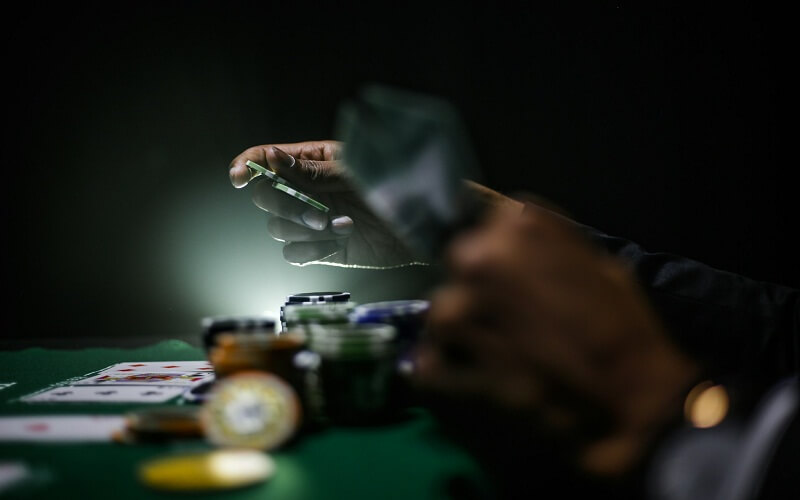Gambling has been a popular form of entertainment for centuries, offering thrills and excitement with the possibility of winning big. However, for some, gambling can become an uncontrollable urge. In this article, we’ll explore how gambling addiction develops, its symptoms, and the consequences of addiction. We will also explain to you how to prevent falling into its trap while still enjoying gambling responsibly.
How Does Gambling Addiction Appear?
Whether you’re betting on sports, playing poker with friends, or testing your luck at an online casino, the thrill of potentially winning can be hard to resist. This compulsive behavior is known as gambling addiction, a recognized disorder that affects millions of people around the world. In 2013, the American Psychiatric Association (APA) classified gambling addiction as a “Gambling Disorder” in DSM-5. It is now considered similar to substance use disorders, where an individual becomes unable to resist the urge to gamble, despite knowing the harmful consequences.
Gambling addiction often starts innocently. Many people begin gambling recreationally at casinos, betting on sports, or playing online games for fun. Over time, some individuals develop a psychological dependency on gambling. The behavior becomes less about entertainment and more about a compulsive need to take risks and chase losses. The transition from casual gambling to addiction is gradual. What might begin as a few extra bets after a losing streak can slowly evolve into an unrelenting cycle of gambling to regain lost money.
Most Characteristic Symptoms and Forms of Gambling Addiction
The symptoms of gambling addiction can vary, but they typically revolve around an inability to control gambling behavior. The most characteristic symptoms include:
- Preoccupation with gambling
A compulsive gambler constantly thinks about gambling.
- Inability to stop
Despite knowing that gambling is causing problems in their life, a compulsive gambler often finds it difficult or impossible to quit.
- Neglecting responsibilities
Personal relationships, work obligations, and other important aspects of life may suffer as gambling takes precedence.
- Borrowing money
People with gambling addiction may start borrowing money from family, and friends, or even take out loans to fund their gambling habits.
Gambling addiction can manifest in several forms, such as:
- Casino addiction
Obsessively playing slot machines, poker, blackjack, or other casino games.
- Sports betting
Compulsively betting on sports events, from horse racing to soccer matches.
- Online gambling
Addiction to online casinos, poker rooms, or betting platforms.
- Lottery and scratch cards
Repeated and excessive participation in lotteries or buying scratch cards in the hopes of winning big.
How to Find Out if You Have a Gambling Addiction
If you suspect that you or someone you know may have a gambling addiction, ask yourself the following questions:
- Do you feel an urge to gamble more often, even after losses?
- Have you tried to quit gambling but found it difficult to stop?
- Do you gamble to relieve stress or escape other problems?
- Do you often gamble with more money than you can afford to lose?
- Have you borrowed money or sold personal belongings to fund your gambling?
If you’re interested in online gambling platforms, make sure to choose a responsible site like 20Bet, where you can enjoy the excitement of gambling in a secure environment. But be careful! Online gambling platforms have made it easier than ever to access betting opportunities at any time. It can be a risk factor for individuals vulnerable to addiction. However, gambling addiction is treatable, and there are resources available for those struggling with it.
Consequences of Gambling Addiction
- Financial problems
People with gambling addiction often drain their savings, max out credit cards, and take on significant debt. In extreme cases, individuals may face foreclosure, bankruptcy, or even homelessness.
- Mental health problems
People with gambling addiction often experience depression, anxiety, and even suicidal thoughts.
- Job loss or poor performance
Individuals with gambling addiction may lose focus at work, miss deadlines, or be unable to meet their responsibilities, leading to job loss or disciplinary action.
Tips for Enjoying Gambling Without Becoming Addicted
It is possible to enjoy gambling as a fun activity without becoming addicted.
- Set realistic expectations
Understand that the chances of winning are often low, and never gamble expecting to win big. Keep your expectations grounded and enjoy the game itself, regardless of the outcome.
- Don’t gamble when bored
Avoid using gambling to fill gaps in your time or stave off boredom. Find other hobbies or activities to engage in to keep a balanced lifestyle.
- See gambling as entertainment, not an income source
Treat gambling as a form of recreation, like going to the movies or dining out, where you’re paying for an experience, not trying to make a profit.
- Avoid gambling when emotional
Whether you’re feeling overly excited or stressed, it’s important to keep your emotions in check while gambling. Emotional gambling often leads to poor decisions.
- Take frequent breaks
Regular breaks help prevent gambling from becoming compulsive. It’s easier to step back and reflect on your behavior when you’re not constantly in the action.
Conclusion
Recognizing the symptoms of gambling addiction and taking preventive measures is essential to keeping gambling in check. By setting limits, avoiding emotional gambling, and staying aware of the risks, you can enjoy gambling responsibly and keep it a fun part of your life. Stay aware, set boundaries, and never be afraid to ask for help when needed.



